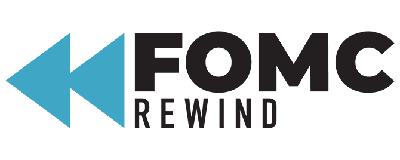The Federal Open Market Committee (FOMC) raised the target range for the federal funds rate by 0.25 percentage points at its February meeting, bringing it to 4.50 to 4.75 percent.
In its meeting statement, the FOMC said it anticipates that ongoing increases in the target range will be appropriate in order to attain a stance of monetary policy that is sufficiently restrictive to return inflation to 2 percent over time. It also said the pace of future increases will be determined by taking into account the cumulative tightening of monetary policy, the lags with which monetary policy affects economic activity and inflation, and economic and financial developments.
The policy statement acknowledged that inflation has eased somewhat but remains elevated. It noted that recent indicators point to modest growth in spending and production, and that job gains have been robust in recent months, while the unemployment rate has remained low. It also said Russia’s war against Ukraine is causing tremendous human and economic hardship and is contributing to elevated global uncertainty.
The policy statement reaffirmed that the FOMC is highly attentive to inflation risks and strongly committed to returning inflation to its 2 percent objective. In addition to raising the policy rate, the FOMC said it will continue reducing its holdings of Treasury securities, agency debt, and agency mortgage-backed securities as described in the Plans for Reducing the Size of the Federal Reserve’s Balance Sheet.
The FOMC also said it will continue to monitor a wide range of incoming information to assess the appropriate stance of monetary policy, including readings on labor market conditions, inflation pressures and inflation expectations, and financial and international developments.
What does this mean for you? Let’s rewind.
February 2023 FOMC Rewind
Quick explainer for the February 2023 FOMC decision (video, 0:59 minutes).
Transcript
Trevor: Hey Schuyler!
Trevor: Looks like the Fed slowed its rate hikes again, is it done fighting inflation?
Schuyler: No, they plan to keep at it, inflation is still too high.
Schuyler: It’ll take some time to get it back to 2%.
Trevor: So, interest rates will keep going up?
Schuyler: That’s likely, but they’re slowing down as they get closer to a peak.
Schuyler: The level is the key, and how long the Fed stays there.
Trevor: Will high rates hurt the economy?
Trevor: I’m hearing about layoffs and a possible recession.
Schuyler: Well, the Fed expects modest growth this year, and some softening in the labor market.
Schuyler: But the goal is to bring inflation down without a sharp downturn.
Trevor: How will they know when to stop raising rates?
Schuyler: They’re closely watching the effects of high rates on inflation and the economy.
Schuyler: They’ll be mindful of the ongoing impacts but committed to getting the job done.
Trevor: That’s good to know – thanks for the insight!
Schuyler: Any time!
You may also be interested in:
The views expressed here do not necessarily reflect the views of the management of the Federal Reserve Bank of San Francisco or of the Board of Governors of the Federal Reserve System.
